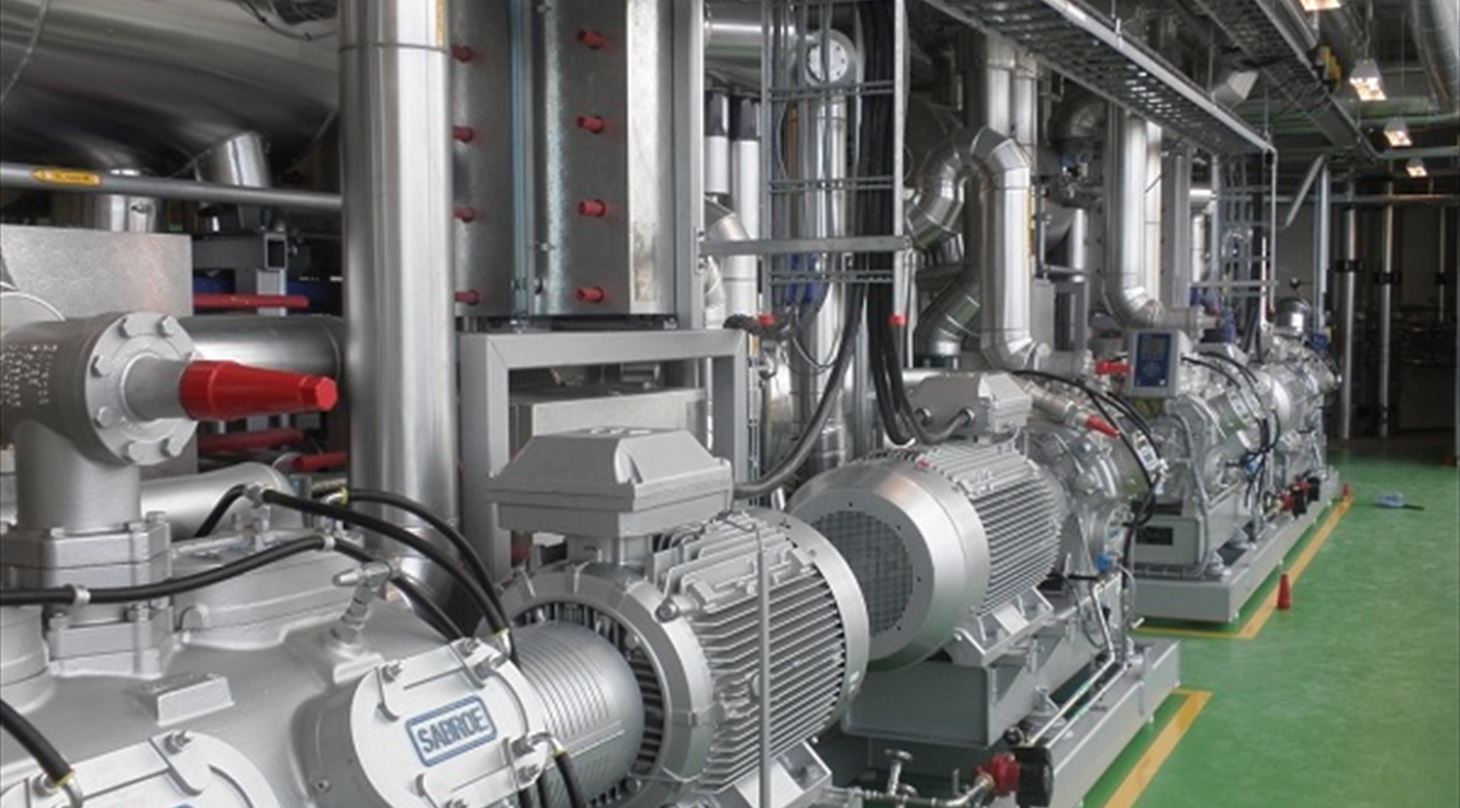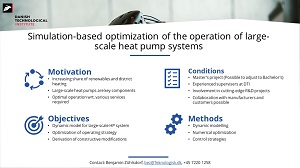
Student projects - Simulation-based optimization of the operation of large-scale heat pump systems
Select Page
Photo: Bjerringbro Energy Central, Denmark
Project 2

Download
Please, send your application marked "Project 2" via the application form on our website.
Background and Motivation
Denmark is a frontrunner in the share of renewables and district heating. Large-scale heat pumps are a key-component in this arrangement and imply the potential to facilitate a further uptake of both technologies. Heat pumps can supply heat to the district heating network in a sustainable matter, while implying the possibility to stabilize the electricity grid. In this context, the importance of heat pumps is increasing, and it becomes even more crucial that the systems are operating optimally.
The heat pump system is typically designed for a continuous operation. The boundary conditions, e.g. the heat source or the electricity prices, are, however, varying. This raises the demand for an operating schedule and control, which enables us to meet the various demands while minimizing the operating expenses.
Objectives
The suggested project aims at developing an operating schedule and control, which minimizes the operating expenses while ensuring sufficient supply of the requested services.
The project comprises the following objectives:
- Development of dynamic model for an existing large-scale heat pump system
- Development of strategies to reduce the operating cost while covering all demands
- Implementation for the operating strategy and a numerical optimization
- Derivation of constructive modifications, e.g. using buffer tanks, to maximize the performance
Methods
The specific methods to be applied during the project will be determined in agreement with the student. The idea is however to use the following methods:
- The dynamic model should be implemented in the Modelica language, using Dymola and the commercially available TIL library
- The optimization should be conducted in Python
The project will be based on existing and operating plants and may be conducted in collaboration with the manufacturer and the operator.
Supervision and Formalities
The project is designed for a master project, but may be adjusted to a bachelor project. The project can be carried out at or in collaboration with the center for Refrigeration and Heat Pump Technology in the division for Energy and Climate in Aarhus.
Benjamin Zühlsdorf will be supervising the project at Danish Technological Institute. Feel free to contact him if you are interested and want to hear more about the project.
Please, send your application marked "Project 2" via the application form on our website.